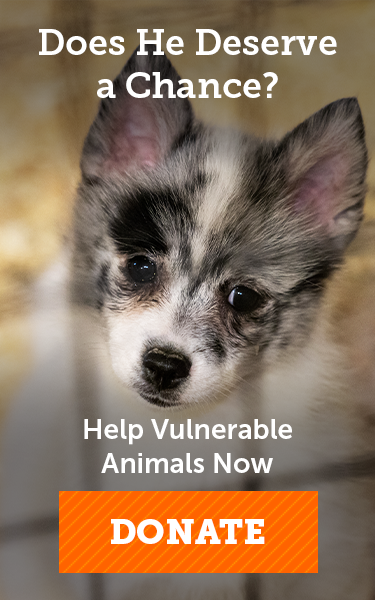
Responsible Breeder or Puppy Mill? Shopping for a Pet Online

They claim that their dogs live in their home and post photos of puppies frolicking in ideal, sunny settings or snuggled up in fuzzy blankets. They say all the right things and promise you a healthy, adorable pet. But they’re several states away, or deflect when you ask if you can visit. How can you tell if the self-proclaimed “wonderful breeder” you’re chatting with online is the real deal or a puppy mill? The truth is, you can’t.
As with everything advertised online, buyer beware: There’s no way for you to know for sure if what you’re seeing on a puppy-sales website is real. Those irresistible images of the puppy you’ve been eyeing might get used repeatedly, or may have even been snatched from another seller’s site and used without permission. When a puppy is shipped from another area, you don’t know how the puppy and his parents have been treated, his health or age, or even if the puppy exists at all.
There is no doubt that some responsible, caring dog breeders use the internet to show off their dogs, educate the public about their breed and communicate with potential buyers. However, the web is riddled with sites employing increasingly sophisticated marketing tactics to sell puppies to anyone with a credit card or a Paypal account.
Online sellers operate with little oversight. Though some indicate that they possess a USDA license, that is no guarantee of better care because current laws are inadequate to protect these dogs—and enforcement of the laws that do exist is weak. Dog registries (sometimes called “papers”) like AKC, United Registry and others are used as selling points, but these certifications do not indicate high welfare: The organizations don’t inspect the facility or the puppy to determine health/quality as a condition of registration.
We urge you to be a savvy consumer. The internet can be an invaluable research tool and is a great place to begin the hunt for your future pet, but not a great place to end it. We always recommend making adoption your first option, but if that’s not possible for you, the best way to avoid unintentionally buying a puppy who was cruelly bred is to meet breeders on their turf. Ask to meet the parent dogs and see where (and how) all their animals live—and remember, if the breeder pushes back, that’s a huge red flag.
If you believe you’ve acquired a dog from a puppy mill, whether knowingly or not, please share your story with us.
